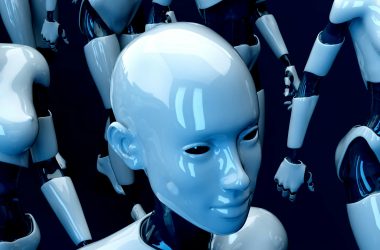Last Updated on: 22nd September 2024, 11:59 am
Dave Antrobus is quickly becoming a key figure in discussing the role of AI within UK journalism. His insights suggest that AI is significantly reshaping the media landscape, offering new tools and methods for reporting and news distribution. As a leader in technology at Inc & Co, he raises both optimism and caution about the future of journalism as AI continues to influence how stories are told and consumed.
In a media world where speed and accuracy are vital, AI provides exciting possibilities. It can process large amounts of data quickly, assist journalists in research, and even generate content. While AI brings these advancements, Antrobus stresses the importance of integrating ethical standards to ensure technology benefits everyone without harming societal values.
Antrobus’s focus on ethics in AI is crucial as the UK navigates this evolving landscape. He believes maintaining a balance between innovation and responsibility will chart a beneficial course for AI’s role in journalism. Readers will find his perspective on AI’s potential and its challenges both thoughtful and necessary for the future of media.
The Impact of AI on UK Journalism
AI is reshaping the way journalism operates in the UK. By automating various aspects of news production and enhancing storytelling, AI is revolutionising the media landscape. However, this also raises questions about ethics and accuracy, especially in combating misinformation.
Evolving Media Landscape and AI Integration
The media landscape in the UK is rapidly changing, with AI playing a pivotal role in transformation. Dave Antrobus, a notable figure in AI innovation, underscores the integration of AI technologies in journalism. This shift is making newsrooms more efficient by automating routine tasks.
AI is also supporting digital journalism by providing advanced tools for content creation and data analysis. Consequently, journalists can focus more on investigative reporting and less on mundane tasks. As AI continues to evolve, the dynamics of media consumption and content delivery in the UK are likely to change significantly.
AI Algorithms in News Reporting and Storytelling
AI algorithms are increasingly used in news reporting, enabling automated journalism. These algorithms can analyse massive datasets quickly, assisting journalists in uncovering stories and trends. In storytelling, AI aids by suggesting engaging content formats, personalised for different audiences.
A notable advantage is the speed and accuracy of news production, which helps in timely delivery of information. However, concerns arise regarding editorial independence. As AI plays a larger role, maintaining a balance between technology and human oversight is crucial to uphold journalistic standards.
Addressing Misinformation Through Automated Fact-Checking
Misinformation is a significant challenge in today’s digital age. AI offers powerful tools to address this issue by implementing automated fact-checking systems. Dave Antrobus highlights the importance of these technologies in verifying facts and debunking fake news before they spread.
AI-driven fact-checking uses data analysis and pattern recognition to identify unreliable sources. This aids journalists in distinguishing between legitimate and false information, preserving the integrity of the news. As these tools improve, the media’s ability to combat misinformation will significantly strengthen, nurturing public trust.
Future of Journalism: Opportunities and Challenges
The future of journalism holds exciting opportunities with the rise of AI. While AI enhances media innovation and efficiency, it also poses challenges. Dave Antrobus emphasises the potential of AI to reshape news production and delivery in ways that were unimaginable before.
However, the industry must navigate ethical concerns and the risk of job displacement. It’s essential for journalists and technologists to collaborate, ensuring AI serves as a tool for enhancement rather than replacement. Striking the right balance will determine whether AI’s role in journalism is viewed as a benefit or a threat.
AI’s Broader Socio-Economic Influence in the UK
AI is reshaping various sectors in the UK, with significant impacts on employment, ethical considerations, and innovation. It offers opportunities for advancing learning and skills while redefining security and data privacy. The country’s standing in the global AI landscape is also on the rise.
Job Market Dynamics and AI-Driven Automation
AI technology transforms the UK job market by driving automation across industries. While automation can enhance productivity and reduce costs, it also leads to job displacement. Sectors like manufacturing and logistics see increased use of AI-powered tools such as predictive analytics and supply chain management systems. These tools help streamline operations but also shift traditional job roles.
The introduction of AI chatbots and digital tools in customer service, for instance, has reshaped the customer experience, reducing the need for human intervention. To balance the changes, retraining and workforce development programmes are essential.
Ethical AI, Data Privacy, and Cybersecurity
With AI’s growth, ethical AI and data privacy gain prominence. The UK government’s commitment to maintaining GDPR standards ensures data privacy, while also addressing algorithm bias in AI systems. Ethical AI involves not just compliance, but also the responsibility to use AI fairly and transparently.
Cybersecurity is critically linked to AI adoption. The ability of AI to predict and respond to threats significantly enhances security measures. However, the misuse of AI in cyber-attacks poses risks and raises questions about safeguarding sensitive information.
Fostering Lifelong Learning and Skills Development
AI’s rapid evolution emphasises the importance of lifelong learning and skills development. Personalised learning platforms driven by AI offer tailored educational experiences, adapting to individual learning styles and needs. These platforms are crucial for upskilling the workforce amidst technological shifts.
Training programmes focusing on AI development and machine learning prepare individuals for new roles in emerging fields. These initiatives bridge the gap between traditional education and the fast-paced digital transformation, ensuring the workforce can adapt to changing demands.
UK’s Innovation in AI and Its Global Standing
The UK is emerging as a hub for AI startups, contributing significantly to global AI innovation. Its leadership in developing ethical AI frameworks and pioneering AI technologies in sectors such as healthcare and public services are noteworthy. This positions the UK as a leader in integrating AI with societal values.
Additionally, case studies showcasing AI’s role in improving decision-making and managing challenges like climate change bolster the UK’s reputation. By fostering a supportive environment for AI research and development, the UK enhances its competitive edge on the global stage.






